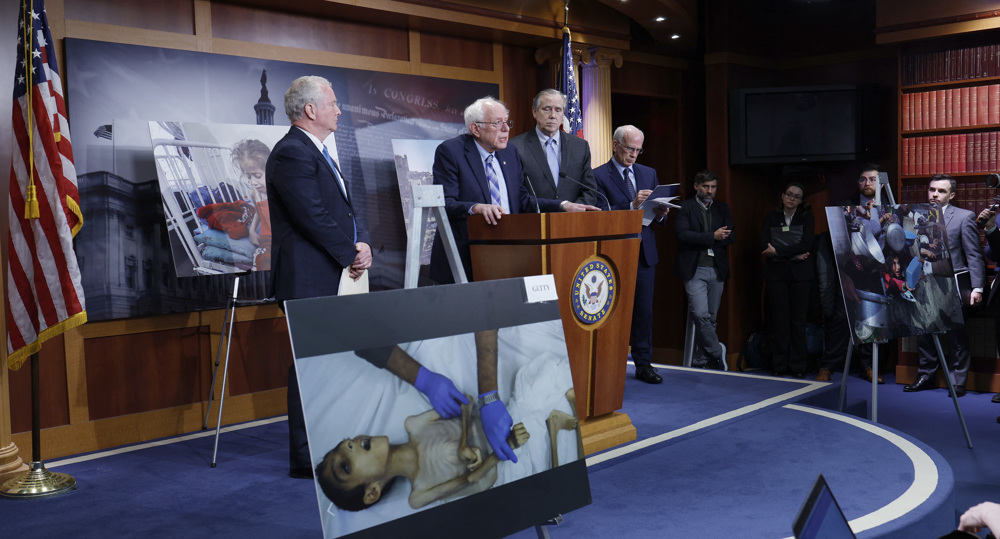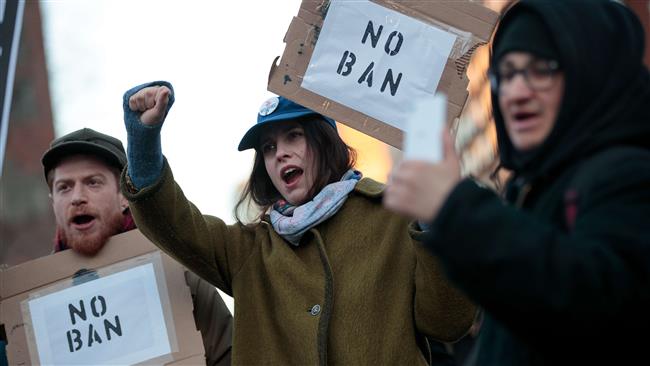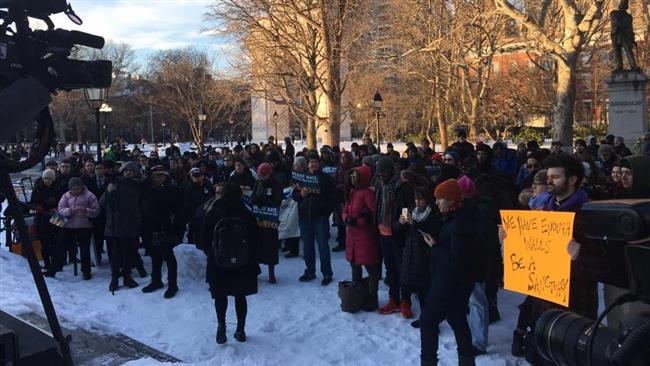Hawaii judge rules grandparents are exempt from Trump travel ban
A US federal judge in the state of Hawaii has ordered the administration of President Donald Trump to vastly expand the number of people exempt from a controversial travel ban on nationals of six Muslim-majority countries.
US District Judge Derrick Watson ruled Thursday that the federal government’s list of family relatives eligible to bypass the travel ban should be expanded to include grandparents, grandchildren, uncles, aunts and other relatives, as well as refugees without family ties to the country.
Watson said the government’s actions in implementing the limits on travel represented “the antithesis of common sense.”
“Common sense, for instance, dictates that close family members be defined to include grandparents,” Watson wrote. “Indeed, grandparents are the epitome of close family members. The Government’s definition excludes them. That simply cannot be.”
The judge also said that refugees who have “formal assurance” from US resettlement agencies for relocation to the country cannot be prevented from entering.
The order by the Hawaii judge delivered another legal hit to the president’s travel ban. Watson was one of the several federal judges who granted a restraining order blocking implementation of the travel restrictions.
Trump issued a revised travel ban on March 6 after his initial directive signed in January was blocked by a federal judge in Seattle, Washington, and upheld by the US Court of Appeals for the 9th Circuit in San Francisco, California.
Read More:
- US top court keeps parts of Muslim ban in place
- Hawaii defies Trump's Muslim travel ban
- Hawaii judge extends order blocking Trump ban
However, the revised order was also blocked by federal judges in the states of Hawaii and Maryland and upheld by the 4th US Circuit Court of Appeals in Richmond, Virginia.
The ban puts a three-month pause on travel to the United States by nationals of Iran, Libya, Somalia, Sudan, Syria and Yemen and a four-month halt on all refugee resettlement.
Last month, the US Supreme Court granted the Trump administration’s request to reinstate parts of the travel ban, after months of legal battle between the government and some states in federal courts.
However, the high court ruled that the government could not enforce the travel restrictions on people with “a credible claim of a bona fide relationship” with a person or entity in the United States.
The Trump administration then decided to make exceptions for spouses, parents, parents-in-law, children, sons-in-law and daughters-in-law, fiancés and siblings of those already in the country. However, they barred grandparents, grandchildren, aunts, uncles, nieces, nephews, cousins, brothers-in-law and sisters-in-law.
VIDEO | Iran's president urges Pope to help end Israel's onslaught in Gaza
Iran's senior legal official: ICC arrest warrants for Netanyahu ‘great victory'
Nov. 21: ‘Axis of Resistance’ operations against Israeli occupation
VIDEO | Israeli forces storm West Bank’s Jenin again, target civilians
Iran activates advanced centrifuges after IAEA's 'unjust' resolution
VIDEO | Press TV's news headlines
Iran FM: Response to Israeli aggression 'inevitable'
VIDEO | Iran eases the rules for exporting hand-woven carpets


















 This makes it easy to access the Press TV website
This makes it easy to access the Press TV website